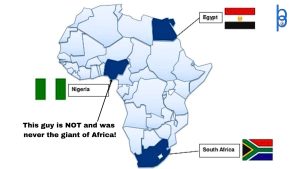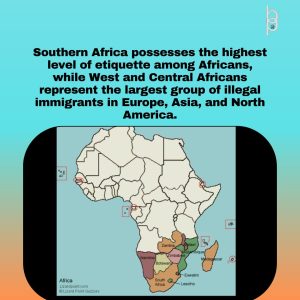
Nigeria at 63: The Evolution of the Nigerian Dream From 1960 to 2023
Over the years, the Nigerian dream has taken different shapes. Different generations of Nigerians have identified their own versions of what they call the Nigerian dream.
The 1950s saw what I will personally describe as the very first version of the Nigerian dream. That was Nigeria’s hopeful generation, the generation that truly believed that as a people we had all it took to set things right, only if we would just be allowed to handle our own affairs. Their version of the Nigerian dream was independence. When the British left and they saw the mismanagement that followed, a good number of them became withdrawn, but there were others who continued to hope. The Nigerian generation of philosophers who dared to hope and who, through their works, spread their unadulterated wisdom, asking for the best from a political class that was too enamoured with their newfound power to care, a generation that produced Achebe and Soyinka.
A political class driven by an overriding quest for power for themselves and the advancement of their clans in general, at the beginning of the republic in 1963, early signs started to show of what was to be expected. Still, there was so much hope and belief, a belief that the boys in Khaki did not seem to share, because in the early hours of January 15th, 1966, they struck in what was to be Nigeria’s first military coup. The Nigerian dream turned into the Nigerian nightmare after that; residual chaos and anarchy became the norm, and in the four years that followed, more than 3 million people from the former Biafra died because of a war that the Nigerian army waged against them under the military dictatorship of Yakubu Gowon. Wole Soyinka called this war a shabby, unequal conflict.
Then came the 1970s, the era of ‘No Victor, No Vanquished.’ A mantra coined by the federal military government in their quest to rebuild a war-torn Eastern Nigeria and give the battered Igbo a renewed sense of belonging. The 1970s were also the era of the indigenisation decree, a decree that moved Nigeria’s industrial power from foreign to local hands, and this was the era of the oil boom, the era of failed coups, and the era of Festac 77. For those in the 70s and 80s, their version of the Nigerian dream was tertiary education and flamboyant white-collar jobs.
This generation also believed in Nigeria, but unlike the generation before them, theirs was not a blind belief laced with imaginary hope because they had learnt from the mistakes of the generation before them. For those in the ’80s and ’90s, their idea of the Nigerian dream was shaped, moulded, and influenced by figures like Fela. This era witnessed the rise of music and entertainment. This was the era of the dominant Supereagles and their Dutch tactician. This era also witnessed interesting things like the birth of Nollywood and not-so-interesting ones, like the introduction of SAP (Structural Adjustment Programme).
The last decade of the 20th century witnessed the birth of a new Nigerian dream. Democracy became the rage of the time because of the June 12 annulments, and it laid the groundwork for the Nigerian dream of the 1990s. Pro-democracy rallies calling for the junta to hand over power to a democratically elected government were met with brutal force by the junta. Democracy eventually returned at the end of the decade and has since been sustained, albeit with cancerous corruption pervading every nook and cranny of the country.
Given the shockwave corruption and mismanagement have inflicted on the country, there is an air of uncertainty hanging over the nostrils of Nigerians, and, of course, this time the Nigerian dream has taken an entirely different turn. Today, different versions of Nigerian dreams exist, subject to the individual. For some, the Nigerian dream is getting into tech, whilst for others, it is emigrating away from Nigeria, or the commonplace Nigerian idiolect “Japa”. With the prevalence of the internet, the presence of digital streaming platforms, and the Afrobeat boom of the last decade, the entertainment industry could make a good case for the Nigerian dream of the day.
Every generation’s youth embody their own version of the Nigerian dream, and the Gen Z of today is no exception. This generation has continued to dream even in the face of unprecedented difficulties: subsidies, police brutality, and inflation. Of every youth, the future relies; the hope and aspirations of the unborn rest on today’s young people. It remains to be seen if they will make good on their Nigerian dream.
As Nigeria turns 63, ask yourself what your version of the Nigerian dream is and how you are working to achieve it despite the odds. Nigeria is 63. Long may she live.
By Nnaemeka OGBONNA





